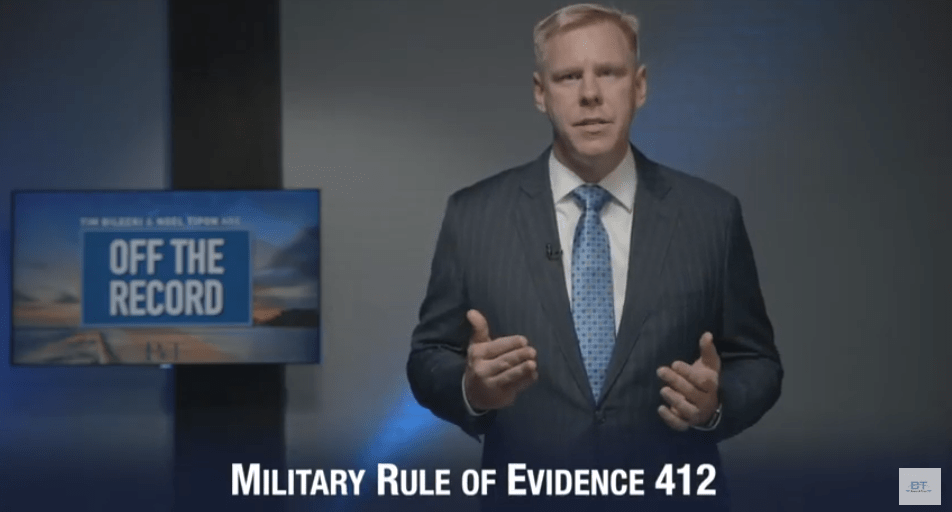LITIGATING MOTIONS
At Bilecki Law Group,We believe every service member has earned their right to an aggressive defense on their day in court. We specialize in taking the fight to the prosecution and winning cases that others said were unwinnable.
Home UCMJ – Basic Training Motions and Litigation
We’re talking about litigating motions next on “Off the Record.” Motions litigation, this is the part of the trial that happens after you’ve been arraigned.
So a motions litigation is really the first opportunity we’re going to have to shape the battlefield or to shape what evidence is going to come in and what evidence may not come in at trial. What witnesses may be there for the trial, what witnesses might not testify.
Topics discussed:
- Critical Trial Stage
- Commonly Litigated Motions
- It Shapes The Battlefield
- Article 39(a) session
- The Trial
Critical Trial Stage
Bilecki Law Group has been fighting for service members accused of sex crimes for decades. We understand the legal ramifications of SHARP and SAPR better than any other team of attorneys and we will take the fight to an overconfident prosecution.
Commonly Litigated Motions
What actually gets litigated?
Commonly Litigated Motions
One of the most common things that’s litigated in a court-martial, in particular a sexual assault court-martial, is called MRE 412, Military Rule of Evidence 412 also known as Rape Shield.
So any type of actions you had with an alleged victim, anything that may suggest her sexuality, anything that may be even remotely sexual or prior allegations she might have made, a lot of that is protected and we’re not allowed to bring that into evidence. So interactions you might have had with an alleged victim previously. You might have slept with her before. You might have been in a dating relationship with her.

That evidence, believe it or not, might not come into trial on its own. We’re going to have to file a motion under MRE 412 to allow access to that information in court. And the government’s going to object to that. So we have to draft a written statement of facts, we’ll research the law, apply the facts to the law, and argue our position. All of this must be done in writing. It’s a time-consuming process, but it’s one that’s critical to a trial. You have to have someone that knows how to research, who knows how to write well, and then also can go into court and argue the motion.
Motions To Compel Witnesses
In addition to issues like MRE 412, the Rape Shield, we can file motions to compel witnesses. So if you want certain witnesses there and you want the government to pay for them, we can file a motion with the court asking the court to compel production of a witness.
If we want an expert witness, let’s say there’s DNA in a case and we want a DNA consultant or a DNA expert, we can ask the government to produce them or to pay for them, but oftentimes the government is going to say no because they don’t want to foot the bill. Then we’re going to have to go to the court and litigate our position and ask the court to provide funding for an expert witness or a character witness. All of this happens in motions litigation.
It Shapes The Battlefield
It is important and is actually a critical part of a trial because it shapes the battlefield. It really tells the participants what evidence is going to come in, what evidence is not going to come in, and again, it really shapes how a trial is going to play out.
Article 39(a) session
So, after the motions are filed and the responses are written, you’ll have what’s called an Article 39(a) session. And all an Article 39(a) session is the lawyer, yourself, the government counsel, we all go into court and we litigate an issue. All right? That’s all it is. And there will be a date. Sometimes one, sometimes two to litigate all the motions. After that occurs, the judge will then issue a written ruling granting the motion, denying the motion, maybe granting it in part. And that written ruling, sometimes it comes down in a week, sometimes it comes down in a month. It really depends on the particular issue, the particular judge, and the particular case.
Trial
Once those motions are ruled on, then we really have a much better idea of how this case is likely going to play out in trial, because trial is really when it all matters. Now we’re going to talk about what actually happens in trial in another episode of “Off the Record.”
